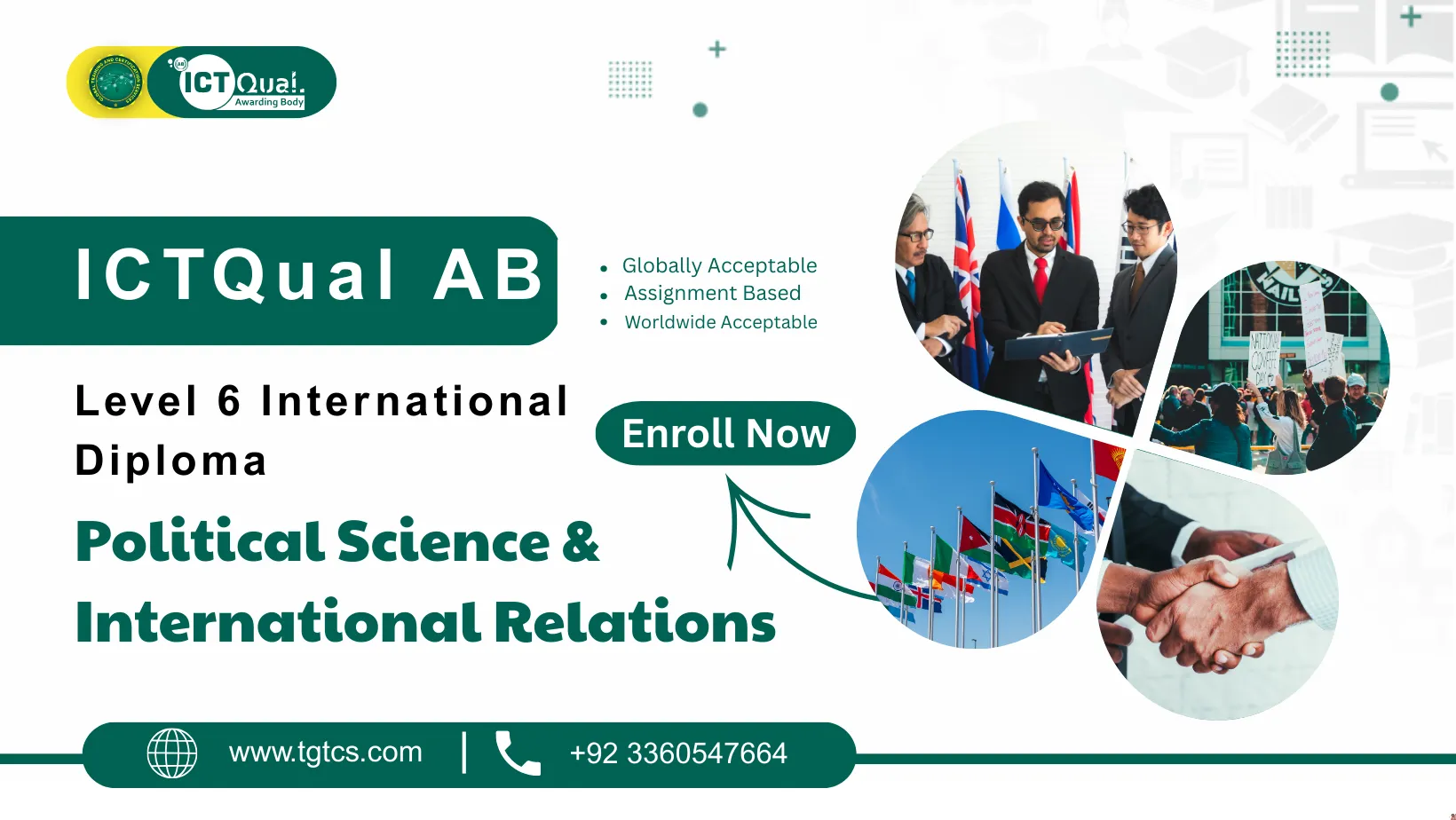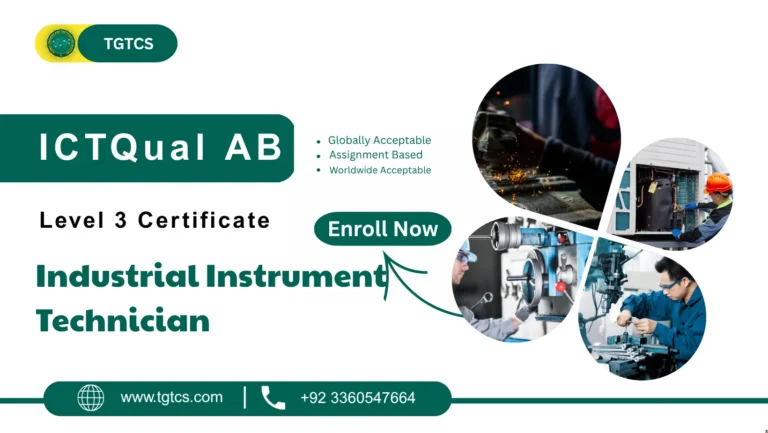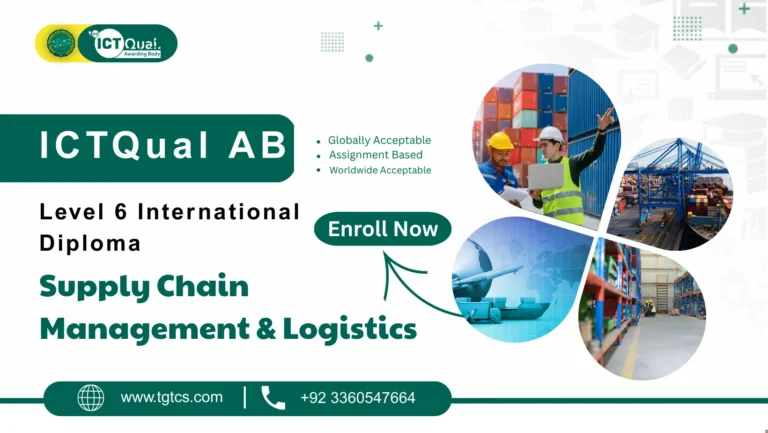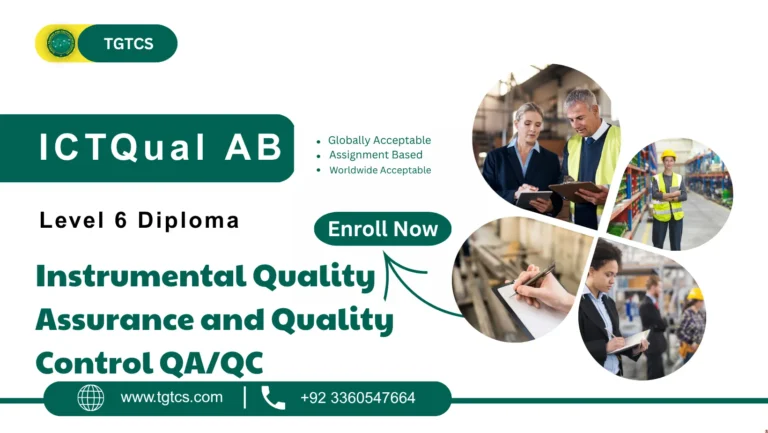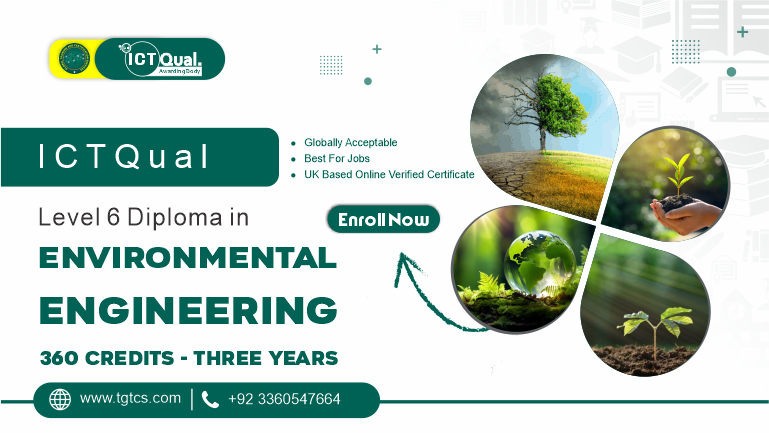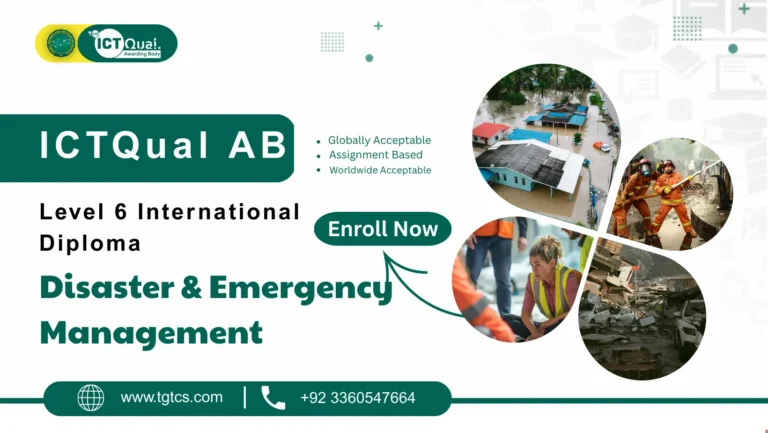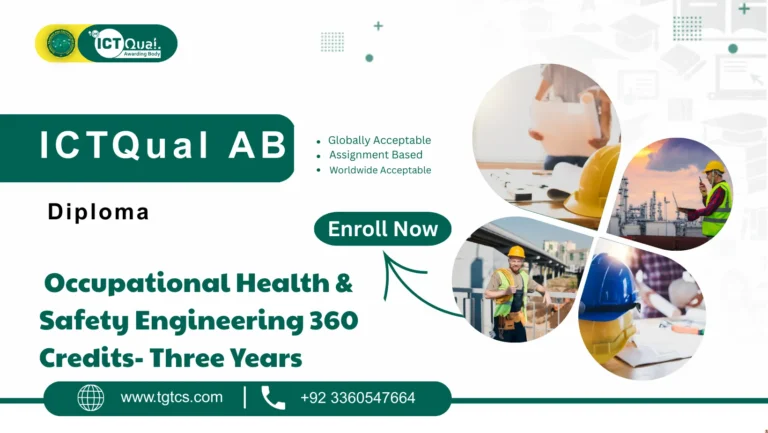ICTQual AB Level 6 International Diploma in Political Science & International Relations
The ICTQual AB Level 6 International Diploma in Political Science & International Relations is designed for aspiring leaders, policymakers, and analysts seeking an in-depth understanding of global political dynamics and international affairs. In an era defined by geopolitical shifts, global governance, and complex international relations, this diploma provides learners with the knowledge, analytical skills, and practical tools necessary to navigate and influence the political landscape effectively.
This comprehensive program covers the fundamentals of political science, comparative politics, diplomacy, international law, global security, and policy analysis. Learners explore the intricacies of governmental structures, policy-making processes, international organizations, and the factors shaping global conflicts and cooperation. The course emphasizes critical thinking, strategic analysis, and evidence-based decision-making, enabling students to assess political scenarios and develop effective solutions for real-world challenges.
Through a blend of theoretical frameworks and practical applications, learners gain expertise in political research, policy evaluation, negotiation, and international diplomacy. The curriculum also addresses emerging global issues such as human rights, international trade policies, environmental politics, and the role of technology in governance. By integrating leadership training with applied political strategies, the diploma equips professionals to excel in government institutions, NGOs, think tanks, international organizations, and diplomatic services.
Graduates of the ICTQual AB Level 6 International Diploma in Political Science & International Relations will emerge with enhanced analytical capabilities, policy development skills, and a global perspective, positioning them for successful careers in political analysis, international relations, public administration, and strategic governance. This globally recognized qualification ensures learners are prepared to contribute meaningfully to shaping policies and managing international affairs with competence and authority.
The Global Training and Certification Services is Approved Training Centre of ICTQual AB UK Ltd
Course Level and Credits
Level 6 International Diploma, 360 credits.
Suitable for professionals, policymakers, analysts, and students seeking advanced knowledge in political science and international relations.
Mode of Study
Fully assignment-based; learn at your own pace.
Accessible from anywhere in the world, ideal for working professionals and international learners.
Global Recognition & Attestation
British Council verifiable, MOFA and Embassy attested.
Recognized for career advancement, employment, and iqama approval in Gulf countries.
Scope and Purpose
Comprehensive coverage of political theory, international relations, diplomacy, governance, and global policy strategies.
Focuses on both theoretical understanding and practical application in government, NGOs, and international organizations.
Skills and Knowledge Gained
Policy analysis, political research, diplomatic negotiation, conflict resolution, and strategic decision-making.
Leadership and analytical skills for careers in politics, governance, and international relations.
Career Benefits
Opens opportunities in government institutions, international organizations, think tanks, NGOs, and diplomatic services.
Enhances professional credibility, employability, and strategic understanding of global political dynamics.
Target Audience
Professionals, policymakers, government officials, analysts, and students aiming for careers in political science, international affairs, and global governance.
Unique Selling Points (USPs)
Flexible self-paced study, fully assignment-based.
Prestigious and globally recognized Level 6 diploma.
Ideal for career advancement, international employment, and iqama approval.
Mandatory Unit
This qualification, the ICTQual AB Level 6 International Diploma in Political Science & International Relations, consists of 36 mandatory units.
Year 1 – Foundation in Political Science & International Relations
- Introduction to Political Science
- Foundations of International Relations
- Comparative Politics and Government Systems
- Political Ideologies and Theories
- History of Political Thought
- Principles of Public Administration
- Introduction to International Organisations
- Global History and World Politics
- Political Communication and Media Studies
- Research Methods in Political Science
- Human Rights and Social Justice
- Introduction to Diplomacy and Foreign Policy
Year 2 – Intermediate Political Science & International Relations
- Advanced Political Theory and Analysis
- International Law and Global Governance
- Political Economy and Development Studies
- Regional Studies: Europe, Asia, Africa, and the Middle East
- Conflict Resolution and Peace Studies
- Political Sociology and Social Movements
- Policy-Making and Public Policy Analysis
- International Political Economy
- Comparative Foreign Policy
- Security Studies and Global Challenges
- Research Methods and Data Analysis in Politics
- Ethics and Professional Practice in Political Science
Year 3 – Advanced Political Science & International Relations
- Contemporary Issues in International Relations
- Strategic Studies and National Security
- International Diplomacy and Negotiation
- Policy Analysis and Political Reform
- Globalisation and Transnational Politics
- Leadership and Governance in Political Institutions
- International Conflict and Crisis Management
- Political Risk Analysis and Strategic Decision-Making
- Environmental Politics and Global Sustainability
- International Cooperation and Development Projects
- Innovation and Emerging Trends in Global Politics
- Capstone Project in Political Science & International Relations
The ICTQual AB Level 6 International Diploma in Political Science & International Relations equips learners with advanced knowledge, analytical skills, and practical expertise to excel in political analysis, diplomacy, and global governance.
Year 1 – Foundation in Political Science & International Relations
Introduction to Political Science
- Understand key concepts, principles, and scope of political science
- Analyze the role of politics in society and governance
- Examine the historical evolution of political systems
- Develop foundational knowledge for advanced political studies
Foundations of International Relations
- Explore theories and frameworks of international relations
- Analyze the dynamics of global political systems and diplomacy
- Understand state behavior and international cooperation
- Identify emerging trends in global politics
Comparative Politics and Government Systems
- Compare and contrast different forms of government
- Evaluate political structures, institutions, and their functions
- Understand electoral systems, policy-making, and political processes
- Analyze governance effectiveness across nations
Political Ideologies and Theories
- Study major political ideologies and their impact on governance
- Examine theoretical approaches to understanding political behavior
- Analyze the role of ideology in shaping domestic and international policies
- Critically evaluate ideological influences on contemporary politics
History of Political Thought
- Understand historical development of political ideas and thinkers
- Analyze contributions of key philosophers and political theorists
- Examine the influence of political thought on modern governance
- Apply historical perspectives to contemporary political challenges
Principles of Public Administration
- Understand public sector management and organizational structures
- Study administrative processes, policies, and governance frameworks
- Develop skills in decision-making and public service delivery
- Evaluate efficiency and accountability in administrative systems
Introduction to International Organisations
- Learn the structure, purpose, and functions of major international organizations
- Analyze the role of the UN, NATO, WTO, and regional bodies
- Understand global governance and cooperation mechanisms
- Explore international organizations’ influence on peace and development
Global History and World Politics
- Examine major historical events shaping global politics
- Understand the evolution of nation-states and global institutions
- Analyze historical conflicts and their contemporary impact
- Connect historical developments to current international relations
Political Communication and Media Studies
- Understand the role of media in shaping political opinions and campaigns
- Analyze political messaging, propaganda, and public discourse
- Evaluate communication strategies in governance and diplomacy
- Develop skills for effective political communication
Research Methods in Political Science
- Learn qualitative and quantitative research methodologies
- Develop skills in data collection, analysis, and interpretation
- Apply research techniques to political case studies and projects
- Critically assess research findings for evidence-based policy-making
Human Rights and Social Justice
- Understand key concepts of human rights and social justice
- Analyze international human rights frameworks and conventions
- Study policies addressing inequality, discrimination, and social protection
- Apply principles to real-world political and social challenges
Introduction to Diplomacy and Foreign Policy
- Examine the fundamentals of diplomacy and foreign policy-making
- Understand bilateral and multilateral relations between states
- Analyze diplomatic strategies and negotiation processes
- Evaluate the role of diplomacy in global security and cooperation
Year 2 – Intermediate Political Science & International Relations
Advanced Political Theory and Analysis
- Critically evaluate contemporary political theories and frameworks
- Analyze complex political phenomena using advanced theoretical approaches
- Understand the evolution of political thought in modern contexts
- Apply analytical skills to assess government policies and strategies
International Law and Global Governance
- Study the principles of international law and legal frameworks
- Understand treaties, conventions, and global governance structures
- Evaluate the role of international law in conflict resolution and diplomacy
- Analyze legal challenges affecting international relations
Political Economy and Development Studies
- Explore the relationship between politics and economic systems
- Analyze development policies and strategies for emerging nations
- Understand global economic governance and trade policies
- Evaluate socio-economic impacts of political decisions
Regional Studies: Europe, Asia, Africa, and the Middle East
- Study political, economic, and social dynamics in key regions
- Analyze regional conflicts, cooperation, and alliances
- Understand historical and contemporary factors influencing regional politics
- Evaluate policy approaches for regional development and stability
Conflict Resolution and Peace Studies
- Examine theories and practices of conflict resolution
- Understand peace-building strategies and negotiation processes
- Analyze case studies of international conflicts and resolutions
- Develop skills to mediate and manage disputes effectively
Political Sociology and Social Movements
- Study the interaction between society and political institutions
- Analyze the role of social movements in shaping policy and governance
- Understand societal influences on political behavior and participation
- Evaluate the impact of civil activism on national and international politics
Policy-Making and Public Policy Analysis
- Understand the policy-making process in national and international contexts
- Develop skills in policy evaluation and implementation strategies
- Analyze policy outcomes using evidence-based approaches
- Apply theoretical knowledge to practical governance challenges
International Political Economy
- Examine the interaction between politics and global economic trends
- Study trade policies, financial systems, and economic institutions
- Analyze the impact of globalization on international relations
- Evaluate economic strategies for national and global development
Comparative Foreign Policy
- Compare foreign policy approaches of different nations
- Analyze strategic decision-making and diplomatic initiatives
- Study the impact of culture, history, and ideology on foreign policy
- Evaluate case studies of international negotiations and alliances
Security Studies and Global Challenges
- Understand international security issues and strategic threats
- Study global challenges including terrorism, cyber threats, and conflict
- Analyze defense policies and security frameworks
- Develop skills in strategic assessment and crisis management
Research Methods and Data Analysis in Politics
- Apply advanced research techniques to political and international studies
- Develop expertise in quantitative and qualitative political research
- Analyze data for policy evaluation and strategic decision-making
- Conduct evidence-based studies to support political analysis
Ethics and Professional Practice in Political Science
- Understand ethical principles in political decision-making and diplomacy
- Apply professional standards to policy-making and international relations
- Study ethical dilemmas in governance, advocacy, and negotiation
- Promote integrity, accountability, and transparency in political practice
Year 3 – Advanced Political Science & International Relations
Contemporary Issues in International Relations
- Analyze current global political events and trends
- Evaluate the impact of international crises on diplomacy and governance
- Understand the role of multilateral organizations in resolving conflicts
- Apply critical thinking to assess global political developments
Strategic Studies and National Security
- Examine national security policies and defense strategies
- Analyze military, political, and economic dimensions of security
- Understand intelligence, surveillance, and counter-terrorism measures
- Develop strategic planning skills for national and international security
International Diplomacy and Negotiation
- Study advanced diplomatic protocols and negotiation techniques
- Analyze case studies of international agreements and treaties
- Understand cross-cultural communication and diplomatic strategies
- Develop skills for conflict resolution and international collaboration
Policy Analysis and Political Reform
- Evaluate existing policies and propose reforms for improved governance
- Apply analytical frameworks to assess policy effectiveness
- Understand regulatory, economic, and social implications of reforms
- Develop evidence-based recommendations for policymakers
Globalisation and Transnational Politics
- Study the effects of globalization on national and international governance
- Analyze transnational political movements and global networks
- Understand the interplay between economic, social, and political factors
- Evaluate strategies for managing global challenges collaboratively
Leadership and Governance in Political Institutions
- Develop advanced leadership skills for political and administrative roles
- Understand organizational structures and decision-making processes
- Analyze the role of governance in promoting stability and development
- Apply leadership principles to complex political environments
International Conflict and Crisis Management
- Study causes and dynamics of international conflicts
- Understand crisis management strategies and intervention techniques
- Evaluate peacekeeping operations and post-conflict reconstruction
- Develop practical skills for managing political crises
Political Risk Analysis and Strategic Decision-Making
- Assess political risks for national and international operations
- Apply strategic frameworks for decision-making under uncertainty
- Analyze case studies of political instability and risk mitigation
- Develop proactive strategies for managing political challenges
Environmental Politics and Global Sustainability
- Understand the intersection of politics, environment, and sustainability
- Study global climate policies, agreements, and environmental governance
- Analyze sustainable development initiatives and policy frameworks
- Evaluate strategies for integrating sustainability in political decision-making
International Cooperation and Development Projects
- Study global development policies and multilateral cooperation frameworks
- Understand project planning, implementation, and evaluation in international contexts
- Analyze strategies for effective collaboration between governments and NGOs
- Develop skills for managing international development initiatives
Innovation and Emerging Trends in Global Politics
- Explore the impact of technology, innovation, and digital diplomacy on global politics
- Analyze emerging trends such as cybersecurity, AI in governance, and e-democracy
- Evaluate adaptive strategies for contemporary political challenges
- Apply innovative approaches to policy-making and diplomatic practice
Capstone Project in Political Science & International Relations
- Conduct independent research on a relevant political science or international relations topic
- Apply theoretical knowledge to practical political and policy challenges
- Develop professional research, analysis, and presentation skills
- Produce a comprehensive project demonstrating mastery of political science and international relations
The ICTQual AB Level 6 International Diploma in Political Science & International Relations empowers learners with advanced knowledge, strategic insights, and practical expertise to excel in political analysis, governance, diplomacy, and international affairs.
Career Advancement Opportunities
- Opens pathways to roles in government, diplomatic services, policy analysis, and international organizations.
- Enhances credibility for leadership positions in NGOs, think tanks, and research institutions.
Global Competence and Strategic Skills
- Develop advanced skills in policy-making, strategic decision-making, and political risk assessment.
- Gain expertise in international relations, diplomacy, and global governance frameworks.
Practical Knowledge and Analytical Expertise
- Learn to apply theoretical knowledge to real-world political challenges and international case studies.
- Develop research, analytical, and data-driven skills for effective policy evaluation and strategy development.
Networking and Professional Growth
- Build professional networks with global peers and experts in political science and international relations.
- Enhance employability and recognition in both national and international political sectors.
Leadership and Ethical Competence
- Strengthen leadership abilities for managing teams, projects, and policy initiatives.
- Develop a strong understanding of ethics, governance, and social responsibility in political contexts.
By completing this diploma, learners gain a comprehensive understanding of political science and international relations, positioning themselves as informed, strategic, and capable professionals ready to influence global affairs.
The ICTQual AB Level 6 International Diploma in Political Science & International Relations is designed for learners aiming to develop advanced expertise in politics, governance, diplomacy, and international affairs.
Government Professionals
- Gain advanced insights into policy-making, governance, and public administration.
- Enhance skills for strategic decision-making, political analysis, and public service leadership.
Diplomats and International Relations Specialists
- Develop expertise in international diplomacy, negotiation, and global governance frameworks.
- Improve abilities to manage cross-cultural communication and international collaborations effectively.
NGO and Non-Profit Leaders
- Acquire knowledge for program planning, advocacy, and social impact assessment.
- Strengthen leadership and organizational management skills for community and global projects.
Researchers and Policy Analysts
- Gain proficiency in research methods, political analysis, and data-driven decision-making.
- Learn to evaluate policies, develop reports, and provide evidence-based recommendations.
Students and Aspiring Political Leaders
- Build a solid foundation in political theory, international relations, and leadership.
- Prepare for advanced studies, internships, and future careers in politics or global organizations.
This diploma equips learners with the knowledge, skills, and professional credibility to thrive in political, governmental, and international roles, empowering them to influence policy and global affairs effectively.
Course Overview
Course Level
Level 6
Course Units
36 Units
Credits
360
Duration
3 years
